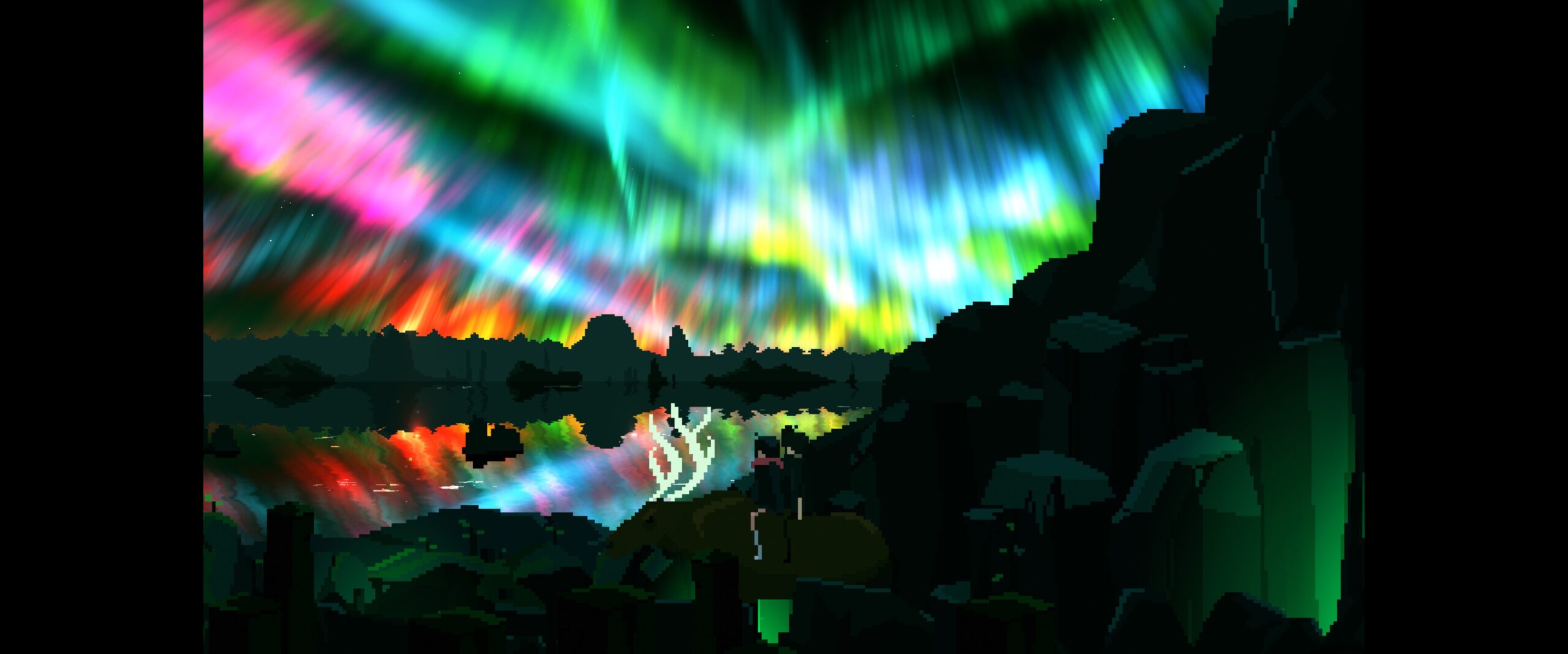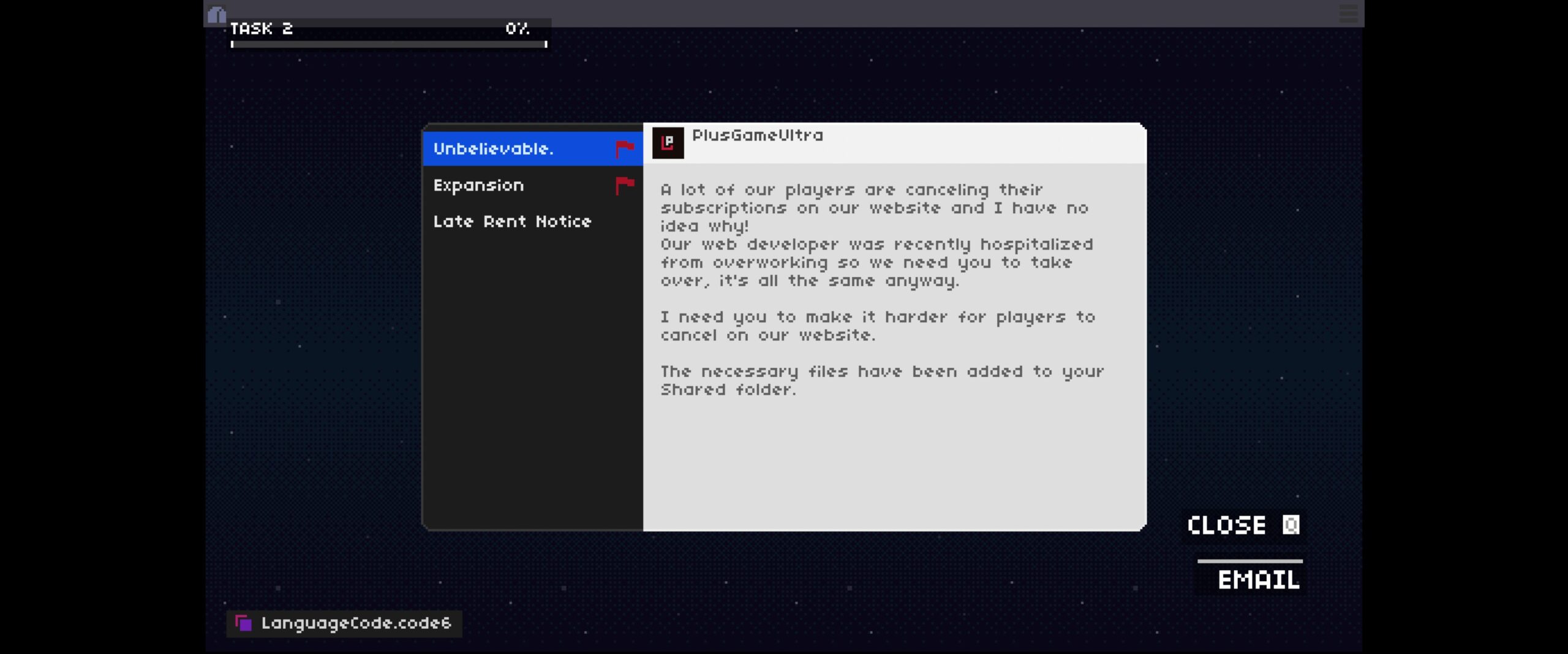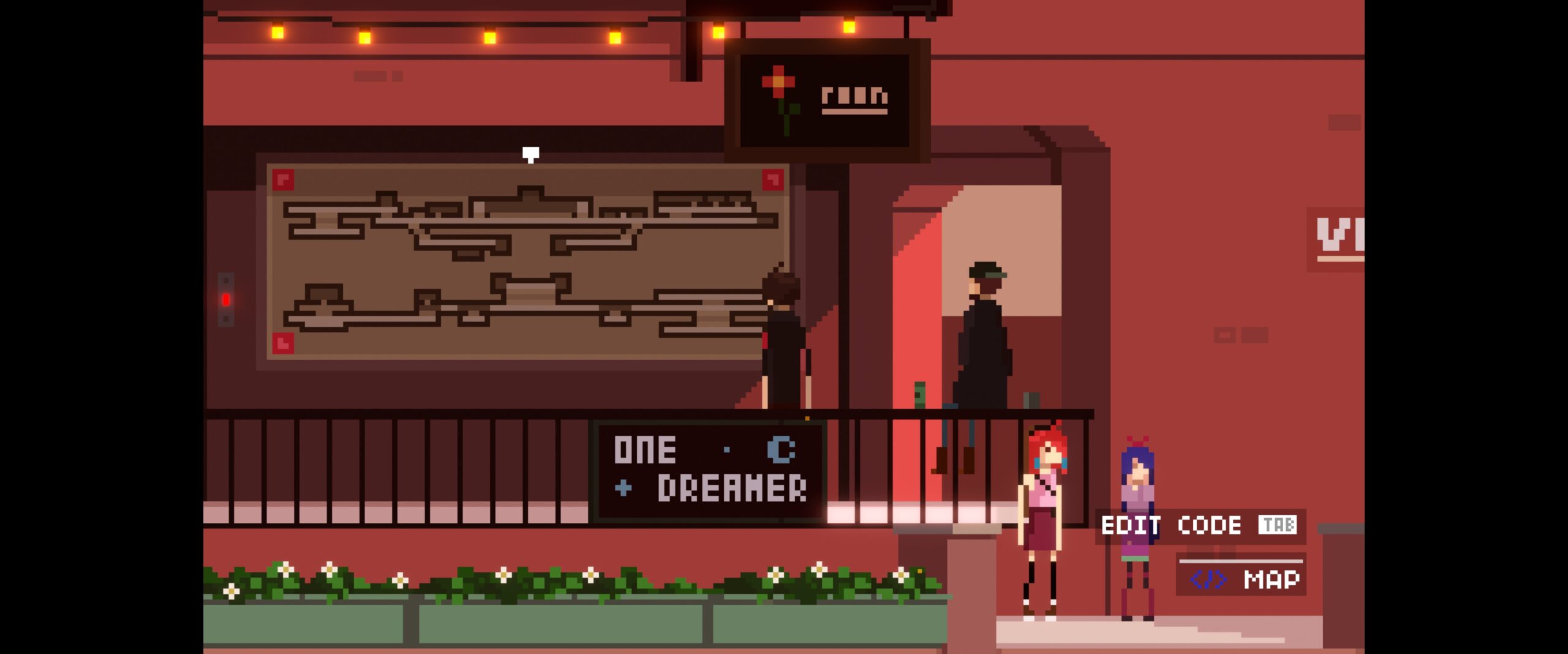The gamer community writ large has is becoming more aware of the struggles of game developers. Almost all AAA titles released these days are accompanied by stories of the horrendous crunch that led up to its release, and there’s numerous tales of indie developers pushing themselves for numerous years just to release a single thing. It’s something I have deep empathy for, having been a small cog in a large software development machine for part of my career. You’d think then that the themes explored within One Dreamer would resonate strongly with me but instead I came away confused; the fantastical presentation of what developing a game would be like being so incongruous with the reality of it which, considering it was presented as a game, presented me with such strong cognitive dissonance I didn’t feel much else whilst playing it.

Frank is a burnt out indie dev, resigned to doing contract work for other dev houses to make ends meet as he lives among the ruins of the dream he once had: his own game, Proxy Life. This wasn’t a dream you had alone however, your long time partner Luna shared that journey with you and has decided it’s time for you to finally realise that dream by remembering what prompted you to pursue it in the first place. So begins your journey back into the past to rediscover what you’d created and how you can finally bring Proxy Life into reality despite the challenges you faced.
One Dreamer’s visual style seems to be inspired by Capybara Games’ (of Superbrothers: Swords and Sworcery EP fame) extreme minimalist pixel art stylings which are then oiverlayed by an array of modern visual effects. Having not played a ton of pixel art games of late I will admit it took me a while to adjust to it, missing some visual cues and generally not vibing with the overall aesthetic. However upon reflection I have to say it’s done extremely well, the low number of pixels definitely punching well above their weight in terms of conveying visual information to the player.

The gameplay loop of One Dreamer is a standard point and click adventure game with the main puzzle mechanic being that of coding puzzles rather than your usual inventory management affair. It’s pretty rudimentary in its implementation, mostly just being a matter of copying text from one location to another, but the way in which you go about doing that follows standard programming tropes pretty closely. The game does a good job of introducing the various programming mechanics through the use of your day job, which is fixing code for other developers. These are usually more simple, guided problems to solve which you can then apply more readily to the game’s other challenges. Beyond that you’ll mostly just be following the narrative as told by the 2 main characters, Frank and Luna.
I will have to admit that, even as a programmer, some of the challenges frustrated me. To be sure I understand why they’re implemented in the way that they are, giving users access to a full dev environment is a true recipe for disaster, but when simple things like copying variables or changing text is locked out so you have to go through a contrived process to do the modification you require I did start to get irritated with it. I think what mostly rubbed me the wrong way was when I had to do some task a couple times over in order to change a couple variables, it felt repetitive and didn’t really feel like it served the story.

I mean, I get that part of this game’s aim is to lift the covers a bit on the trials and tribulations of what being an indie game developer is like and repetition, boredom and frustration are definitely a part of that. But I don’t think that should be the aim of a good game, especially one that seeks to engender empathy for its two main characters.
PLOT SPOILERS BELOW
Perhaps that’s the main issue I have here: I simply did not, at all, resonate with the characters and the story here. Whilst I can definitely appreciate the origin of wanting to make something that connects people, especially those who wouldn’t otherwise, the path the story trod from there just felt wildly disconnected from reality. To be sure there are many, real world examples of things that have happened to indie devs portrayed in here, but that’s offset then by other weirdly fantastical elements thrown in to give the protagonists something to strive against. It was clear to me when the game wanted me to feel something in particular but, at every emotional climax, I simply didn’t resonate with it at all. I think this is probably why I didn’t click as much with the game mechanics as I was simply uninterested in the story that was being told.
PLOT SPOILERS OVER

There’s definitely a lot to appreciate One Dreamer, both in it’s raw construction and what it sets out to achieve. For me though I just didn’t enjoy the experience and narrative it put forward, feeling that it was too far away from reality in the parts that mattered in order to make it engaging. However reading reviews from others many have found a lot to love in the story, so perhaps my take on it is left of center for what you might experience.
Rating: 7.0/10
One Dreamer is available on PC right now for $22.95. Total play time was 5.2 hours with 40% of the achievements unlocked.



